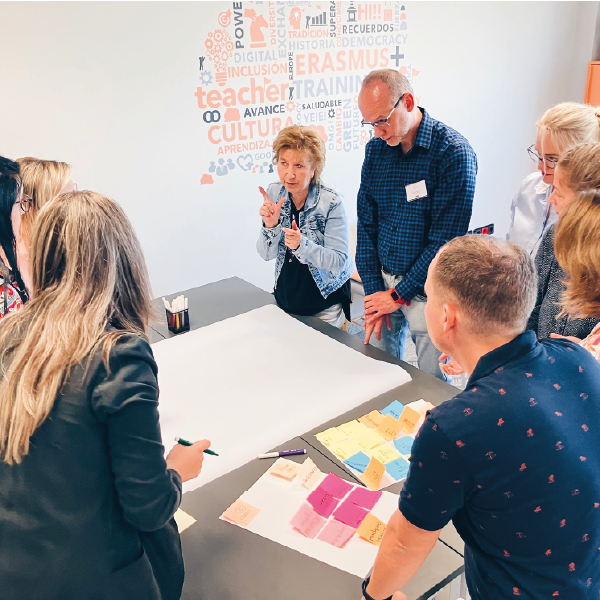Description
As we strive to better prepare students for real-world careers and challenges, it is essential to focus on developing their creative and critical thinking skills.
Educators can empower students to become 21st-century problem solvers by introducing them to a wide variety of thinking tools that go beyond memorization and recall. This workshop aims to equip educators with diverse methods to cultivate creative, critical thinkers and problem solvers—students who are lifelong learners capable of applying their knowledge to complex, novel, and open-ended challenges. By the end of this course, participants will have the confidence and competence to guide their students as they navigate the new horizons of life and work.
Upon completing this course, participants will be able to:
- Increase their awareness of their influence on learners' intellectual development.
- Effectively support and nurture creative and critical thinking in their students.
- Familiarize themselves with and utilize a wide range of tools designed to foster creative thinking.
- Implement various methods to apply creative solutions in their professional lives while discovering their own creative potential.
- Harness and channel their learners' creativity in problem-solving.
- Create conducive environments for the development and promotion of critical thinking within the student body and the teaching community.
- Enhance their ability to seek out solutions and improve communication skills.
- Analyze problems from a systematic and holistic perspective.
- Break free from habitual patterns of thinking.
- Adapt and change their habitual strategies of behavior.
The approach will be practical, experiential, and grounded in the analysis of real-world concerns and challenges faced by the group. Participants will primarily work in assemblies and small groups, fostering reflection and creativity to expand the range of options and alternatives for action. Role-playing, case analysis, and group dynamics will also be employed.
Additionally, a course follow-up strategy will be offered to all participants to monitor the implementation of best practices in their schools, based on the knowledge, skills, and competencies gained during the course in Spain.
Through their commitment and active participation, educators will be able to build professionally-oriented support networks within their communities, making their work and contributions more visible on a local scale. Other benefits include updating teaching or pastoral support programs, accessing a new network of teachers across Europe to inspire fresh ideas, teaching methods, and problem-solving approaches, and keeping pace with the latest educational trends. Participants will also have the opportunity to verify and enhance their pedagogical and communication skills, contributing to the creation of a new, open-minded, and inclusive school environment.
- Updating teaching or pastoral support programs.
- Gaining access to a new network of teachers across Europe, inspiring fresh ideas, innovative teaching methods, and effective problem-solving approaches.
- Staying current with the latest educational trends.
- Verifying and enhancing pedagogical and communication skills.
- Contributing to the creation of a more open-minded and inclusive school environment.
NEXT COURSES
Our Pricing
100% funded by the Erasmus+

Services included
- Pre-arrival information.
- Tuition & training materials.
- Coffee break.
- Training Certificate.
- Europass Certificate.
- Admin & organizational costs.
services
- Accommodation (hotels & self-catering apartments).
- Half-day and one-day trips.
- Cultural activities.
- Airport transfer.
- Local transport.
We want to read you
Reach out to us using our contact form and we will get back to you shortly.

